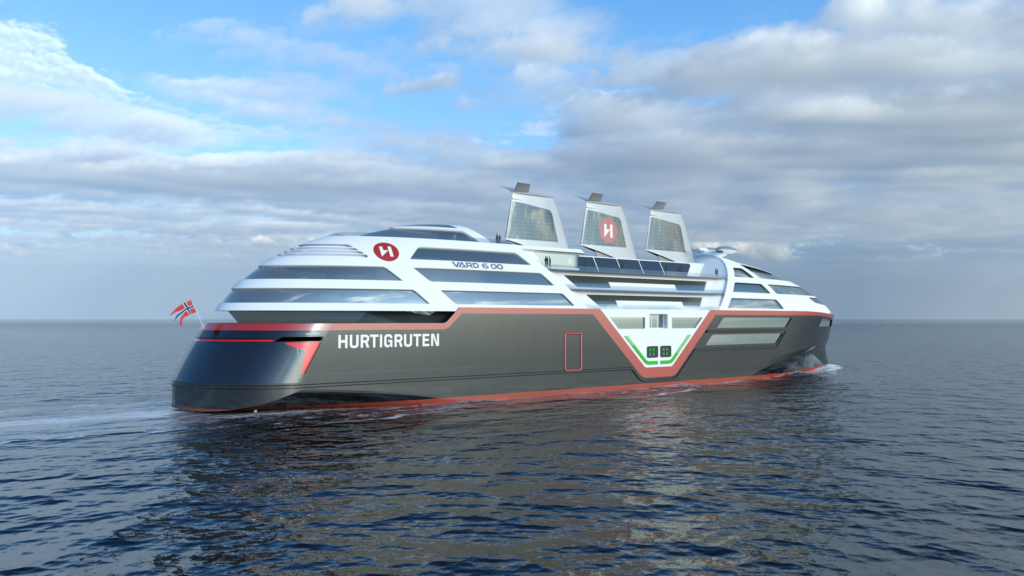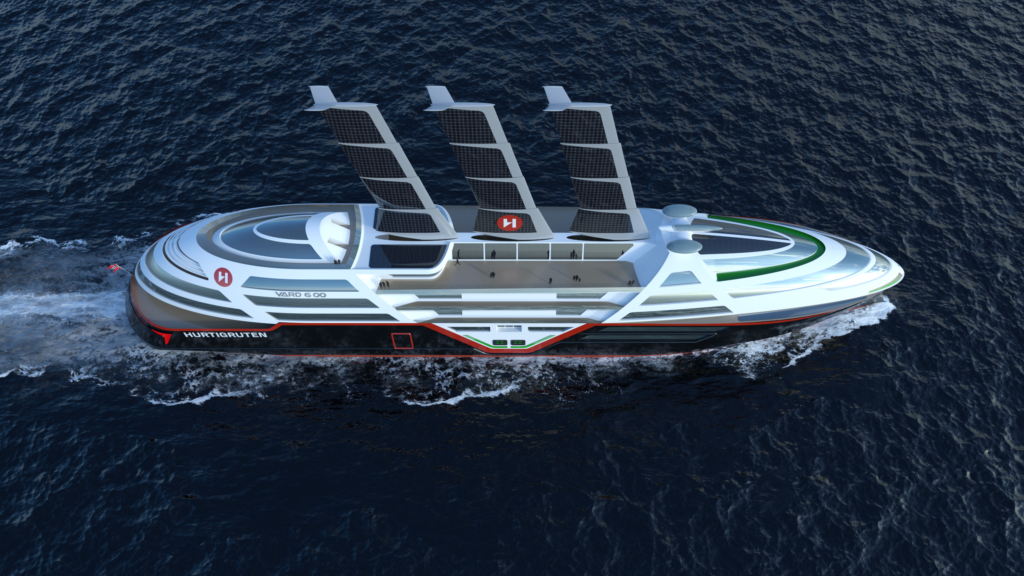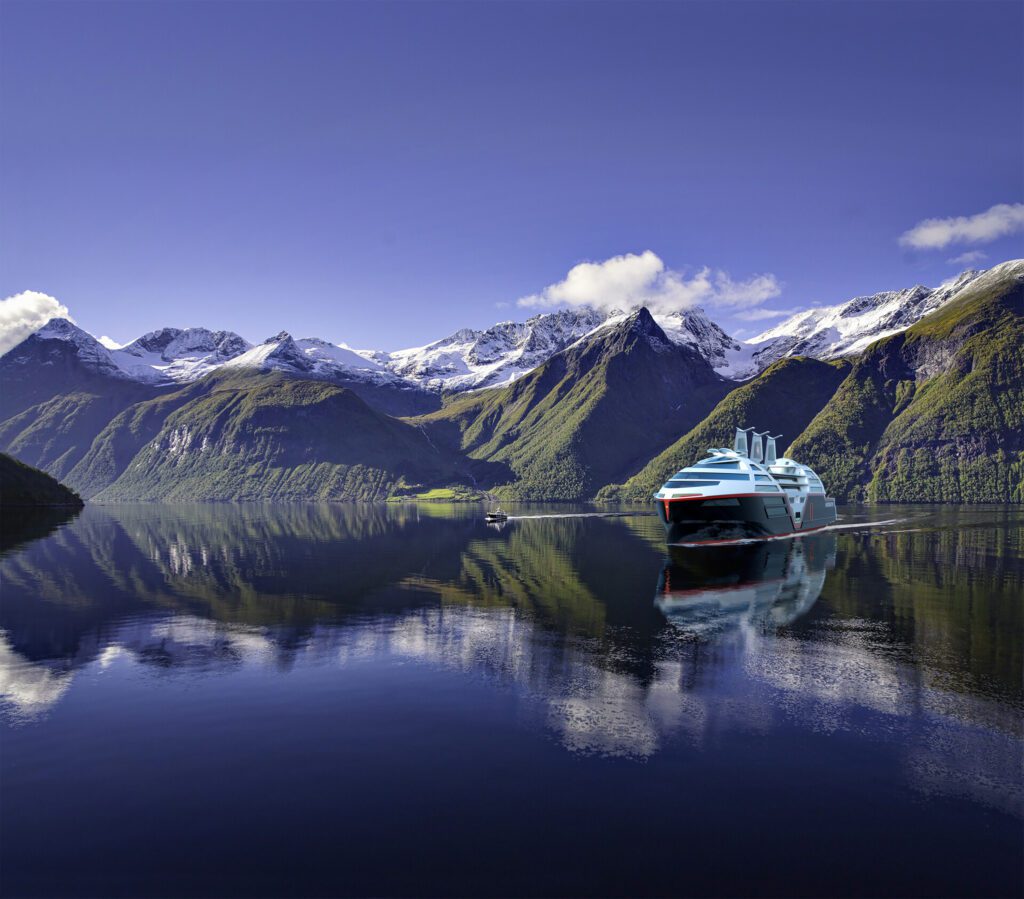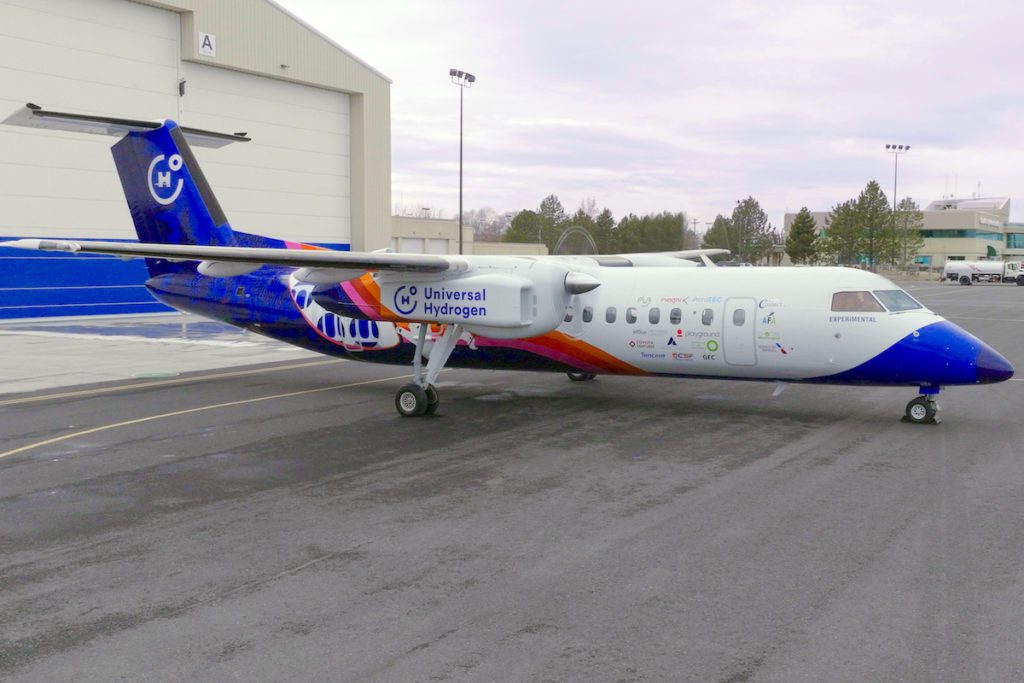Hurtigruten Norway has unveiled the early concept designs for its first zero-emission ship, which is set to feature ‘numerous firsts and improved solutions that do not exist on cruise ships today.’
Initially announced by the Cruise Line in March 2022 as part of its ‘Sea Zero‘ project, the new designs showcase the vessels proposed retractable sails fitted with solar panels, which will be featured alongside an array of cutting-edge technologies, including contra-rotating propellers, multiple retractable thrusters, air lubrication systems, advanced hull coatings, and proactive hull cleaning.
Hurtigruten Norway predicts that advanced AI maneuvering capabilities will significantly reduce the size of the ship’s bridge and mimic that of an aircraft cockpit, with further AI technologies set to optimize docking operations by gathering real-time data for continuous operational improvement.
Guests are also set to play a key role in ensuring the green credentials of the vessel thanks to an on-board interactive app, where they will be able to monitor their water and energy consumption.
“When we initially announced the ‘Sea Zero’ project over a year ago, we were faced with the challenge of not knowing which technologies would be available to us in 2030. Our task was to pave the way for new innovations and enhance existing ones to align with our sustainability objectives. While some of these technologies have reached a relatively advanced stage, they still necessitate dedicated research and development to ensure successful implementation within the maritime context,” said Hedda Felin, CEO of Hurtigruten Norway.
“On the other hand, certain technologies are still in early development and require fundamental research and thorough testing. Following a rigorous feasibility study, we have pinpointed the most promising technologies for our groundbreaking future cruise ships. We are committed to delivering a ship that surpasses all others in terms of energy efficiency and sustainability within just a few years.”
The concept has now embarked on a two-year testing phase, where the proposed technologies will undergo further trials and development.
At the Skift IDEA Awards, we are looking for the organizations elevating the travel industry’s role as a force for good by affecting meaningful change, including the sustainability projects that are creating a positive impact for the planet.
If you have an exciting project to share, head to the Skift IDEA Awards today and start your submission. The final deadline for entries is June 20, 2023.



